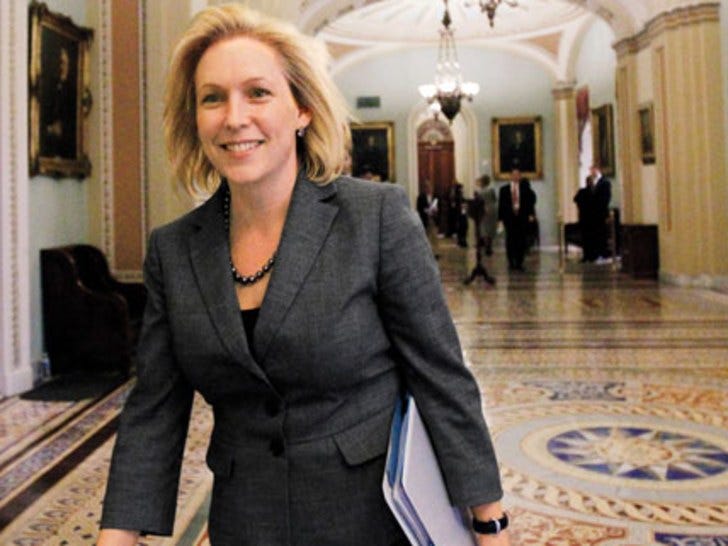New Small Business Administration Mandate Garners Media Attention

by Erin Kesler
Signed into law last month, the John McCain National Defense Authorization Act contained a provision to expand employee ownership to more Americans. Drawn from Senator Kirsten Gillibrand’s (D-NY) Main Street Employee Ownership Act, and informed by the hard work of employee ownership advocates including Fifty by Fifty, the Democracy at Work Institute, the National Center on Employee Ownership, and the Rutgers University Institute for the Study of Employee Ownership and Profit Sharing, the new legislation instructs the Small Business Administration to provide technical assistance and loans for employee-ownership conversions.
The new lending guidelines could help provide an opportunity for more than 2 million retiring small business owners to sell their businesses directly to workers, either by converting the business to an Employee Stock Ownership Plan (ESOP) or to a worker cooperative. Called “the most significant policy change on employee share ownership in over two decades” by Joseph Blasi, director of the Institute for the Study of Employee Ownership and Profit Sharing, the new legislation has led to a flurry of media coverage, summarized below.
CNN’s Lydia DePillis, in her coverage, explains the history of ESOPs, which were formalized in a 1974 law but have not grown in number in recent years.
DePillis interviews Ken Baker, the CEO of New Age Industries, a family-owned plastics manufacturer that began converting to employee ownership over a decade ago. Baker explained to DePillis that employee ownership increased staff commitment, reduced turnover, and “allowed people to retire with hundreds of thousands of dollars more than they otherwise would have.”
With a team that “walks through walls for the company,” Baker says, he can’t think of a better choice than leaving the employees in control when he retires. “It beats what’s happening in America right now, with a lot of small companies being sold to private equity and multinationals,” he told CNN. “Not all of them get destroyed, but many of them do.”
In The Conversation employee-ownership experts Joseph Blasi and Douglas Kruse explain that few retiring business owners have a child who wants to take over the business, and only about 20 percent of businesses put up for sale actually sell. “That makes selling their businesses to the workers who helped create all the value in the first place one of the best options available,” they argue.
For Forbes, Anne Field reports on new local support for employee ownership in Chicago. The Cook County Commission on Social Innovation is looking at employee ownership as an effective way to address wealth inequality in the city. One of several initiatives is the Ownership Conversion Project, which involves five entities — Manufacturing Renaissance, Safer Foundation, LISC-Chicago, Chicago Federation of Labor and World Business Chicago — coming together to form an enterprise that would focus on conversions of manufacturing companies owned by “white boomers.” The new enterprise would secure the funding for the employees — mostly women and people of color — to purchase their companies and would provide technical assistance to support employees during the conversion process.
Reporter Jena McGregor writes about the “silver tsunami” of retiring business owners in a Washington Post column. McGregor highlights the connection between ownership and engagement, citing research by Blasi that shows employees with an ownership stake are more likely to stay with the company. McGregor also cites Paige Ouimet, a professor at the University of North Carolina’s business school, who found “that publicly held companies with ESOPs had improved productivity.“
Questions regarding employee participation and democratic practices are bubbling up in Silicon Valley, too, according to an article in the New Republicby Christopher Mackin. Citing a memo from Google employees calling for greater transparency and corporate accountability, Mackin argues that Silicon Valley’s vision of the utopian workplace is bumping up against the realities of capitalism, where “employees without substantial ownership and governance rights, employees who are not members of democratic corporations, have no standing.” Says Mackin, “They are merely rented humans.”
Giving employees a stake in the company, argues Mackin, is one way to create “a more democratic and responsive economy.” Because of the size of companies like Google, the SBA mandate to support employee-ownership conversions won’t provide an immediate solution but is a first step toward giving more Americans access to a more equitable workplace. Google employees might look to a proposal from Senator Elizabeth Warren, the Accountable Capitalism Act, which would require companies with over $1 billion in revenues to reincorporate under a “co-determination” model requiring no fewer than 40 percent of company directors to be elected by employees.
Erin Kesler is Democracy Collab editor.
